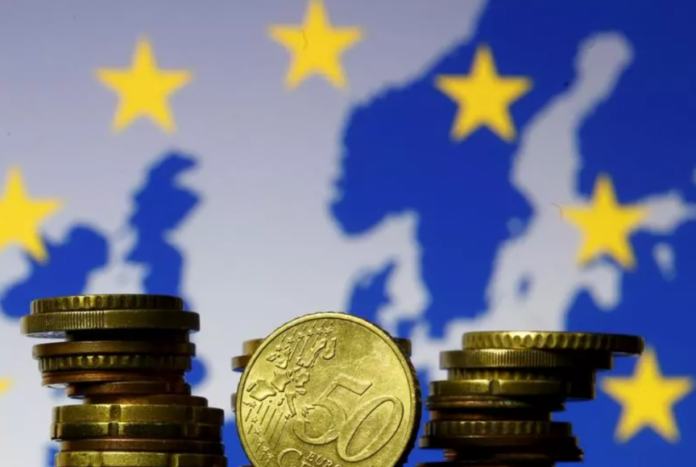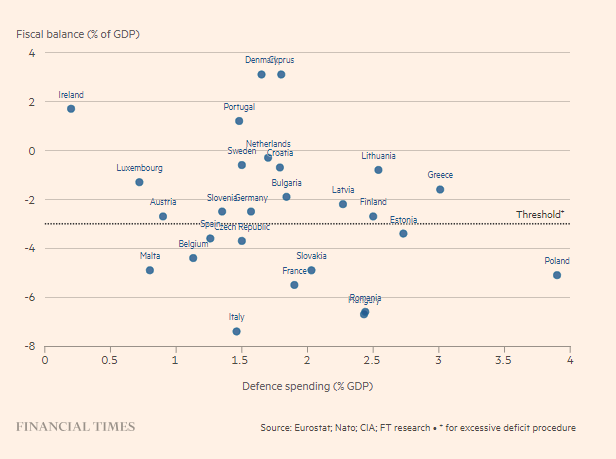
Which are pushing to opt out of the 'excessive deficit process' because of their high defense spending
Eleven EU countries, including France and Italy, face European Commission “penalties” for excessive government spending once new fiscal rules come into effect this year.
These countries last year ran budget deficits larger than the 3% of GDP limit allowed under EU rules. The Commission will decide in June whether to launch so-called excessive deficit procedures (EDPs) in each case. Eurozone countries could face fines if they don't correct their course, while – as the Financial Times points out – countries outside the euro face risks to…. their reputations.
France, Italy and Belgium, whose deficits are above 3% and do not plan to return to compliance in the coming years, are almost guaranteed to face sanctions.
These fiscal rules were suspended during the Covid-19 pandemic and are now being re-implemented following the reform, including clauses that provide more room for defense investment.
The penalties from the ECB
The new rules are further burdened by the European Central Bank, which has said it could exclude countries from its new but untested bond-buying program if they do not act on EDB recommendations .
Some countries, including Spain and the Czech Republic, argue that their deficit will return to 3% or below this year and should not be penalized for the temporary breach.
“There may be borderline cases. Valdis Dombrovskis, the committee's executive vice-president for economic affairs, told the Financial Times. “If there is a country whose excessive deficit is close to 3% but it is temporary, we may decide not to use the excessive deficit procedure. The 2024 budget may come into play.”
Non-Eurozone Romania is currently the only country in EMU.

Defense spending
Poland and Romania, as well as Slovakia, a member of the eurozone, are pushing for an exemption on the grounds that military spending caused by Russia's full-scale invasion of Ukraine has pushed them over the line.
“Poland has the highest defense spending among NATO countries, higher than the US. This is an exceptional situation that must be taken into account when assessing the excessive deficit process, and the new EU fiscal rules have been put in place for this,” Andrzej Domański, Poland's finance minister, told the Financial Times.
Poland ran a deficit of more than 5% in 2023 and spent 3.9% of its GDP on defense in the same year, meaning its non-defense deficit was below the 3% threshold.
“We are in dialogue with the Commission and there is a broad understanding that such investments should be given due consideration,” Domański said.
Defense spending “is one of the relevant factors” determining whether or not to move an excessive deficit process, Dombrovskis said.
But not all defense spending is subject to leniency. Under the EU's reformed budget rules, “the increase in public investment in defence” can be reduced, but not recurrent defense spending.
“It was clear in the negotiations that this would be an issue. Soldiers' wages versus tanks,” said one EU diplomat, noting that it was up to the Commission to determine what could be exempted.
Criticism
The Commission has been criticized in the past for failing to enforce deficit rules, especially in the case of France. Tougher enforcement was a key demand of Germany and others during negotiations to reform the rules.
“We will be watching very closely,” said an EU ministry official.
A possible the result is that countries will still be placed in the EDP, but that the fiscal adjustment set by the Commission in the autumn will be smaller.
“Clear rules govern EDPs,” said Dombrovskis. “These main parameters have not changed. 3% of GDP remains the relative limit for the initiation of a DYE”.




